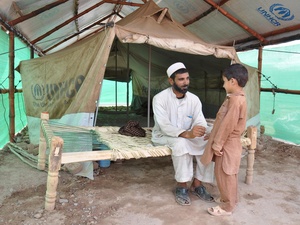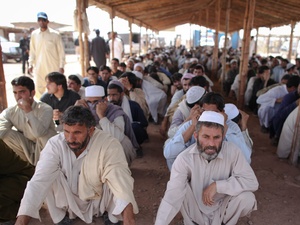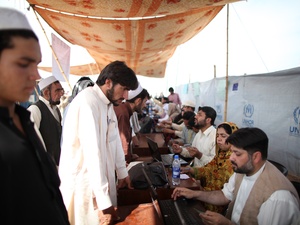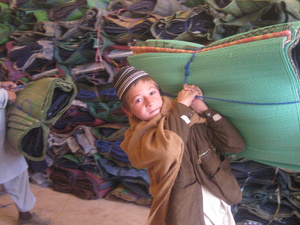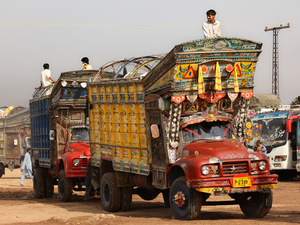Progress in Afghan refugee screening
Progress in Afghan refugee screening
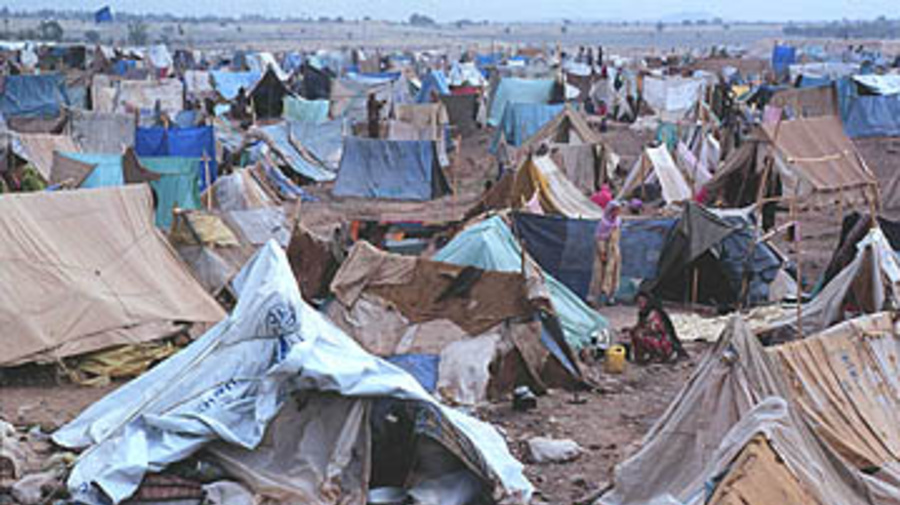
The need to move refugees from Jalozai is pressing.
ISLAMABAD, Sept 11 (UNHCR) - Joint UNHCR/Pakistan screening teams at the makeshift Jalozai site and Nasir Bagh refugee camp in north-west Pakistan have processed more than 1,000 cases of Afghans seeking protection in Pakistan. Teams comprising 55 screeners have completed 739 cases, determining whether the Afghans qualify for refugee status and can remain in Pakistan under an agreement between UNHCR and the government of Pakistan. Of the 739 cases completed so far, 519 have been accepted, 148 have been rejected, and 59 have opted for voluntary repatriation to Afghanistan.
So far, a total of 1,733 accepted Afghans from Jalozai have moved to the better-equipped New Shamshatoo refugee camp. UNHCR has provided the refugees with tents, groundsheets, jerry cans, buckets, kitchen sets, washing powder and soap. They will also receive food assistance from the World Food Programme.
The screening process involves a first registration stage to collect basic data and determine whether the Afghans wish to be considered for refugee status in Pakistan. This is followed by a full-fledged refugee status determination procedure for those seeking protection. On September 10, the joint team registered another 1,530 Afghan families in Nasir Bagh refugee camp Of this group, 1,419 families decided to return home, while 111 families choose to seek protection in Pakistan. Since the beginning of the screening exercise on August 6, the screeners have processed 22,559 families altogether at both sites. Some 14,675 families have been registered and will be interviewed to determine their refugee status, while 7,884 families have opted to repatriate to Afghanistan.
UNHCR and the Pakistani Commissioner for Afghan Refugees have agreed to establish 14 review teams in Jalozai and 10 in Nasir Bagh. The review teams will deal with appeals and unresolved cases.



